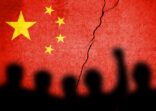Noah’s partnership with JTC established ARK Trust, which is the first managed trust company in Jersey for a mainland China institution, according to JTC.
The driver for the offshore trust was linked to the changing needs of Chinese high net worth clients, which accelerated over the past 18 months, explained Kenny Lam, group president of Noah Holdings, speaking at a media event in Hong Kong today.
“One year ago, the Chinese high net worth client would want to go global to diversify risk but also looked at [high] returns. The asset class choice was narrow – property and private equity.
“Today, the Chinese investor would say yes, he wants to diversify more and two, global investments are exactly that and I shouldn’t expect 15-20% return, I should be assimilating into the global environment.”
Another point Lam emphasised was that Chinese clients are not just looking at investment opportunities but ways to plan for succession as the first generation of entrepreneurs ages and passes money to the younger family members.
“One – two years ago, clients wouldn’t speak about succession planning. Now they look at insurance, tax planning and most everything about second generation wealth planning.
“We are just at the beginning of this change and it will have many years of demand as [client needs] rapidly evolve.”
The firm, which has an asset management arm called Gopher, also said it set up an investment office in Silicon Valley last month and it has obtained a license for US investment.
“Our core client base is still Chinese high net worth individuals but we need a US team to look into the US market in a robust manner, both primary and secondary markets like hedge funds, to find the best investment opportunities for our clients,” Lam said. Previously, the firm had been looking at the US market from Hong Kong.
Shanghai-based Noah listed on the NYSE in 2010. Noah and another Shanghai-based firm, Jupai Holdings, are the only two China-based wealth managers that have listed overseas.
As of 31 March, Noah had assets under management of RMB94.6bn ($14.2bn).
















